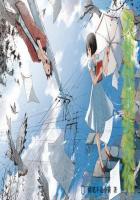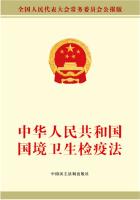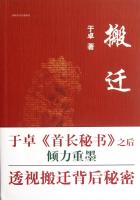into a refined selfishness.Referring to the common saying, that interest governs the world, he remarks shrewdly: "Whoever looks narrowly into the affairs of it, will find that passion, humor, caprice, zeal, faction, and a thousand other springs which are counter to self-interest, have as considerable a part in the movements of this machine.There are more wheels and counterpoises in this engine than are easily imagined." With such affections, " man is naturally social, and society is natural to him;" and in illustrating this position, he sets himself vigorously against the social theory of Hobbes, who represents the original state of man as one of war.Virtue consists in the proper exercise of these two classes of affections.Vice arises when the public affections are weak and deficient, when the private affections are too strong, or affections spring up which do not tend to the support of the public or private system.He shows that virtue, as consisting in these affections, is natural to man, and that he who practises it is obeying the ancient Stoic maxim, and living according to nature.The virtues which he recommends fall far beneath the stern standard of the Stoics, and leave out all the peculiar graces of Christianity: they consist of, -- "a mind subordinate to reason, a temper humanized and fitted to all natural affection, an exercise of friendship uninterrupted, thorough candor, benignity, and good-nature, with constant security, tranquillity, equanimity."He would establish a morality on grounds independent of religion."Whoever thinks that there is a God, and pretends formally to believe that he is just and good, must suppose that there is, independently, such a thing as justice, truth, and falsehood, right and wrong, according to which he pronounces that God is just, righteous, and true." " If virtue be not really estimable in itself, I can see nothing estimable in following it for the sake of a bargain; " and he complains of those who " speak so much of the rewards and punishments, and so little of the worth or value of the thing itself." He remarks very justly: " By building a future state on the ruins of virtue, religion in general, and the cause of a deity, is betrayed; and by making rewards and punishments the principal motives to duty, the Christian religion in particular is overthrown, and its greatest principle, that of love, rejected and exposed." He admits, how {34} ever, that a good God, as a model, has an effect on our views of morals and conduct; and allows that "fear of future punishment and hope of future reward, how mercenary and servile however it may be accounted, is yet, in many circumstances, a great advantage, security, and support to virtue."Such is his view of the nature of virtue.But Shaftesbury is quite aware that the question of the character of the virtuous act is not the same as that of the mental faculty which looks at it and appreciates it.This faculty he represents as being of the nature of a sense.
Locke had allowed the existence of two senses, an external and an internal; and had labored in vain to derive all men's ideas from these two sources.Hutcheson, perceiving that the inlets to the mind were too few according to the theory of Locke, calls in other senses.These senses become very numerous in the systems of some of the Scottish metaphysicians, such as Gerard.In the writings of Shaftesbury, two occupy an important place, -- the sense of beauty and the moral sense.
"No sooner," he says, "does the eye open upon figures, the ear to sounds, than straight the Beautiful results, and grace and harmony are known and acknowledged.No sooner are actions viewed, no sooner the human affections and passions discerned (and they are most of them as soon discerned as felt), than straight an <inward> eye distinguishes and sees the <fair> and <shapely>, the <amiable> and <admirable>, apart from the <deformed>, the <foul>, the <odious>, or the <despicable>." Though in all this advancing quite beyond the "Essay on the Human Understanding," yet he seems to be anxious to connect his view of the moral sense with the reflection or inward sense of Locke."In a creature capable of forming general notions of things, not only the outward beings which offer themselves to the sense are the objects of the affections, but the very actions themselves, and the affections of pity, kindness, gratitude, and their contraries, being brought into the mind by reflection, become objects.So that by means of this reflected sense, there arises another kind of affection towards these very affections themselves, which have been already felt, and are now become the subject of a new liking or dislike."Conscience is represented by him "as the reflection in the mind of any unjust action or behavior, which he knows to be naturally odious and ill-deserving.{35} No creature can maliciously and intentionally do ill, without being sensible, at the same time, that he deserves ill.And in this respect, every sensible creature may be said to have a conscience."
He has evidently been smitten with some of the Platonic views of beauty."We have," he says, "a sense of order and proportion; and having, a sensation, reason can give this account of it, that whatever things have order, the same have unity of design and concur in one, are parts constituent of one whole, or are in themselves one system.
Such is a tree with all its branches, an animal with all its members, an edifice with all exterior and interior ornaments." He is fond of connecting or identifying the beautiful and the good; in fact, virtue is represented by him as a higher kind of beauty."It is, I must own, on certain relations or respective proportions, that all natural affection does in some measure depend." "The same numbers, harmony, and proportions have a place in morals."He evidently clings fondly to the idea that " beauty and good are one and the same."We have given so full an account of the philosophy of Shaftesbury, because of the influence which it exercised on the Scottish Philosophy.Francis Hutcheson did little more than expound these views, with less versatility, but in a more equable, thorough, and systematic manner.Turnbull, who founded the Aberdeen branch of the school, and influenced greatly the mind of Reid, avowedly drew largely from Hutcheson in his theories of taste and virtue.Reid and Beattie got their favorite phrase, " common sense," I have no doubt, directly or indirectly from the treatise so entitled in the " Characteristics." Hume was evidently well acquainted with the writings of {36} Shaftesbury; and I am inclined to think that they may have helped to form his style, and to suggest some of his essays.We have an anticipation of the spirit of Hume in the miscellany entitled, " Philocles to Palemon:" "You know that in this Academic Philosophy I am to present you with, there is a certain way of questioning and doubting, which in no way suits the genius of our age.Men love to take party instantly.They can't bear being kept in suspense.The examination torments them." Theocles observes, that "if there be so much disorder in the present state of things, he would not be disposed to think better of the future." Lord Monboddo declares that " Shaftesbury's Inquiry is the best book in English on the subject of morals." His Draught or Tablature of the judgment of Hercules, and his Disquisitions on Taste, originated the theories of Beauty which formed an essential part of Scottish metaphysics for more than a century.















